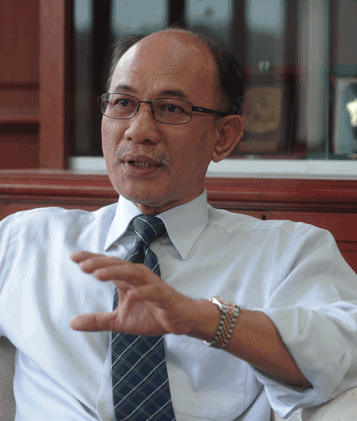The agriculture sector is important in the socio-economic development of the country. The agriculture sector, including industrial crops, is among the 12 National Key Economic Areas (NKEAs) to drive economic activities that have the potential of contributing significantly to the country’s economic growth.
The National Agrofood Policy (NAP) 2011-2020 has identified productivity-driven growth strategies that can guarantee sufficient food supply that is also safe for consumption, apart from being able to increase the income of farmers.
The structural changes and exposure of the Malaysian economy to globalisation alters the agriculture sector, which will continue to experience changes and competition from other sectors. These changes and competition are increasingly noticeable today and it is not easy to project the future environment of agriculture.
However, a few global and domestic mega trends that will influence the agriculture sector environment can be identified as follows:
- Rapid urbanisation – will encourage the development of urban farming, and it is predicted that the urban population will be able to supply their own food without relying on food supplies from rural areas;
- Climate change and resource constraints – this issue will be more pressing, and the agriculture sector needs to generate the research results of crops, livestock and fishery that can adapt and formulate mitigation instruments of climate change. Sustainable farming practices and optimisation of agricultural input become more important to ensure competitive agricultural output;
- Demographic change, and population and income growth – will influence consumers’ taste and behaviour in terms of concern for the safety and quality of food and nutritional changes of the Malaysian society;
- Geopolitics and changes in global economic power – will affect the trends of imports and exports of agricultural goods and the country’s balance of payments;
- Technological success – the development of the fourth industrial revolution that emphasises the virtual reality technology without much use of manpower will influence the utilisation structure of the agriculture sector input especially in terms of automation, drones and robotics, apart from technologies such as precision agriculture that is driven by sensors, genetics and controlled environment;
- Exploitation of knowledge and techno-entrepreneurship – the function of tertiary education institutions has changed from focusing only on teaching and learning to exploitation and commercialisation of knowledge. Universities are also seen as the catalyst of new entrepreneurial activities by utilising the knowledge from their research findings;
- The distribution system of agricultural goods – together with the development of the fourth industrial revolution, the distribution system will change with the use of online system. Supermarkets will become warehouses for distribution to consumers.
The future and shape of environment of the country’s agriculture sector can be projected by understanding the guided variables and addressing issues that arise. Therefore, the curriculum of agricultural education needs to be proactively formulated and adapted to the mega trends so that agricultural education is relevant and in line with market demands. This is to ensure that trained workforce in the agriculture field meets the needs of the national agriculture sector so that efforts to improve the national agricultural productivity can be effectively implemented.
In addition, to ensure that agriculture graduates have a high interest in the agriculture field, student intake needs to be done through the interview method and not solely based on academic achievement.
One thing that is lacking in the agriculture sector is a highly qualified agri-entrepreneur. Only a very small number of agriculture graduates venture into the agri-entrepreneurship career. Therefore, efforts need to be enhanced to incorporate the agri-entrepreneurial characteristics into students who are interested and have the penchant for this career. Additional training such as the agri-entrepreneurship incubation programme offered at Universiti Putra Malaysia should be provided after graduation.
During incubation, participants are trained in agricultural business practices with an emphasis on the application of the business plan, management and marketing methods. As part of the training, participants are required to plan, finance and successfully manage a “start-up company”. Throughout the incubation programme, the participants receive guidance and mentorship from various experts at the university and private sector through a “mentor-mentee” programme, and the support from relevant government agencies.
In conclusion, agriculture education should produce manpower that:
- understands and combines mega trends that affect the agriculture sector;
- practises sustainable agriculture and optimises limited resources;
- has the knowledge and skills in the agriculture technical and technology field;
- has the competence in business and economy to address global competition issues;
- possesses the characteristics of entrepreneurship; and
- is courteous and has the cognitive, psychomotor and affective equilibrium.
 |
|
Prof. Datuk Dr. Mad Nasir Shamsudin
Lecturer
Faculty of Agriculture |
Date of Input: 07/03/2018 | Updated: 07/03/2018 | hairul_nizam
MEDIA SHARING



























